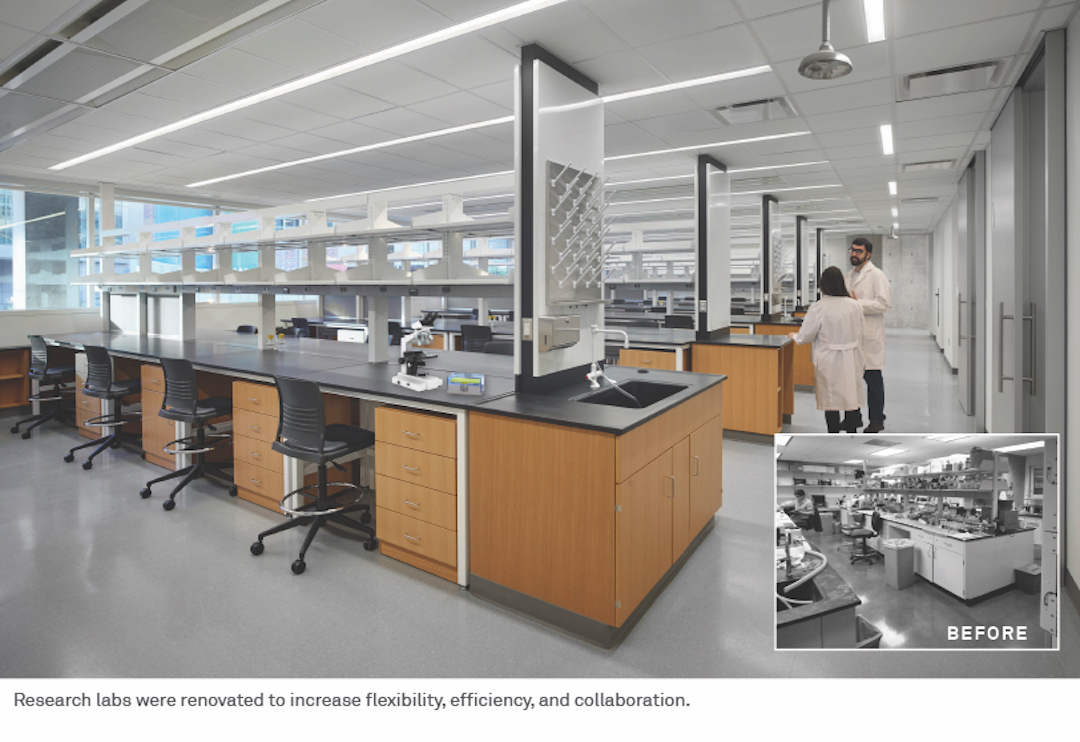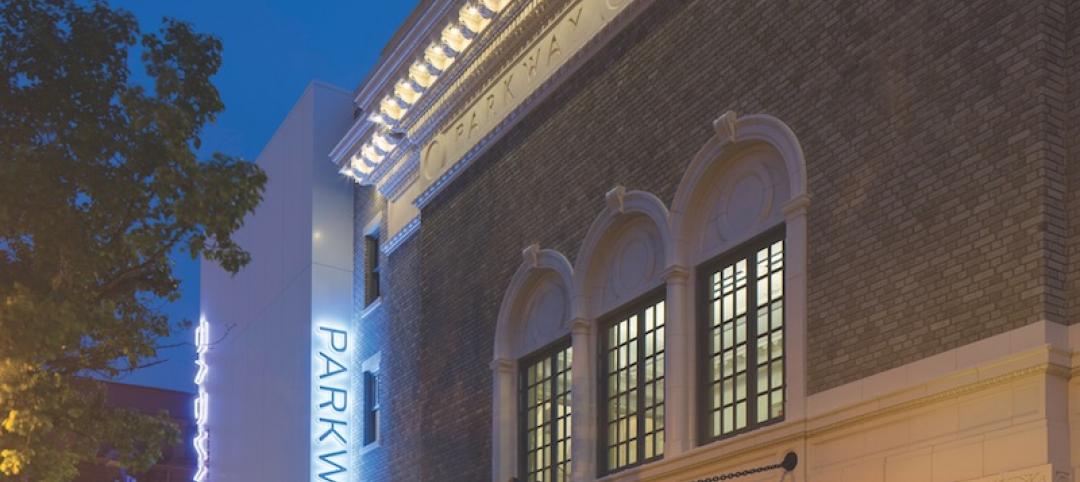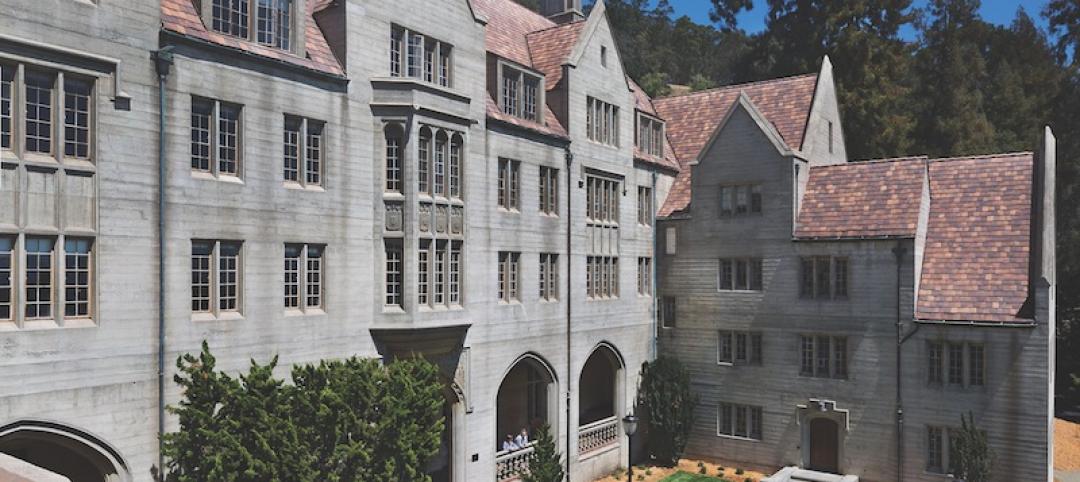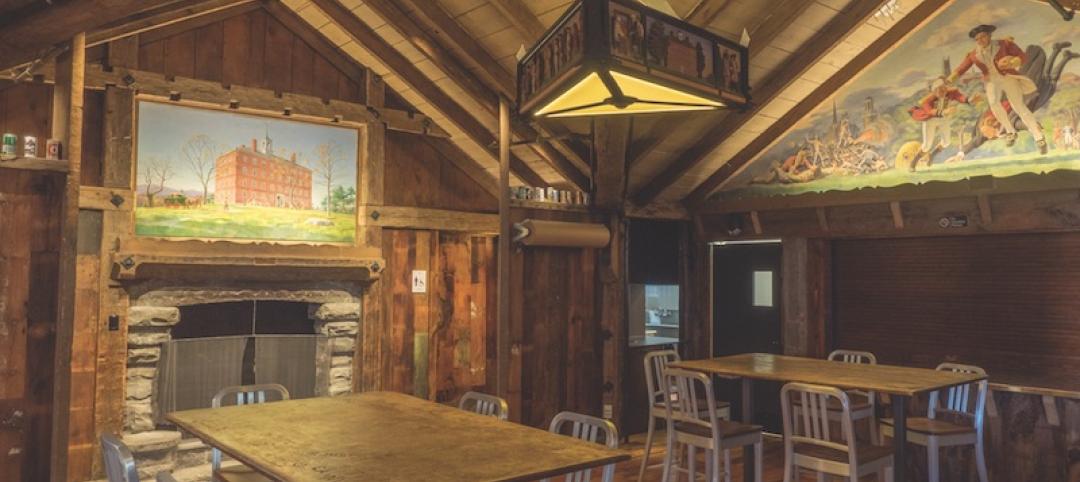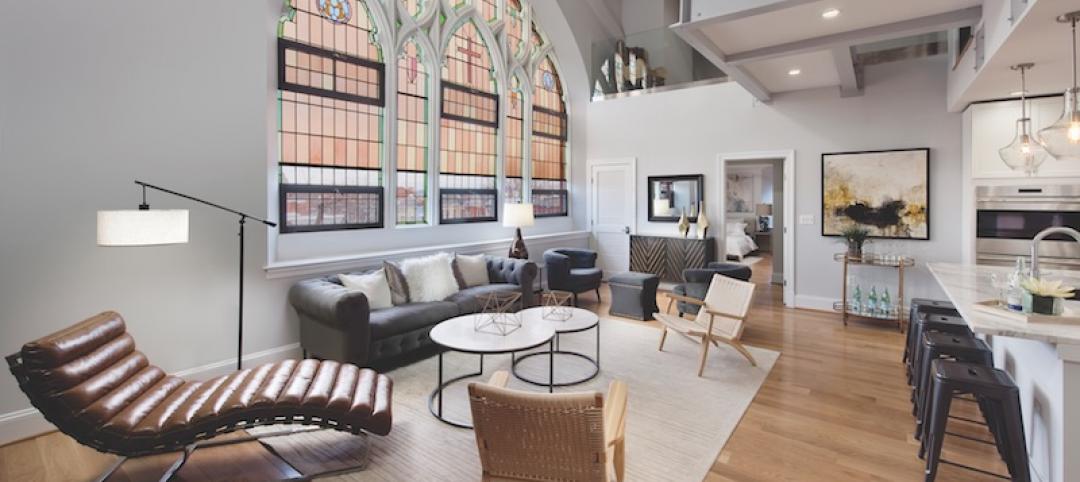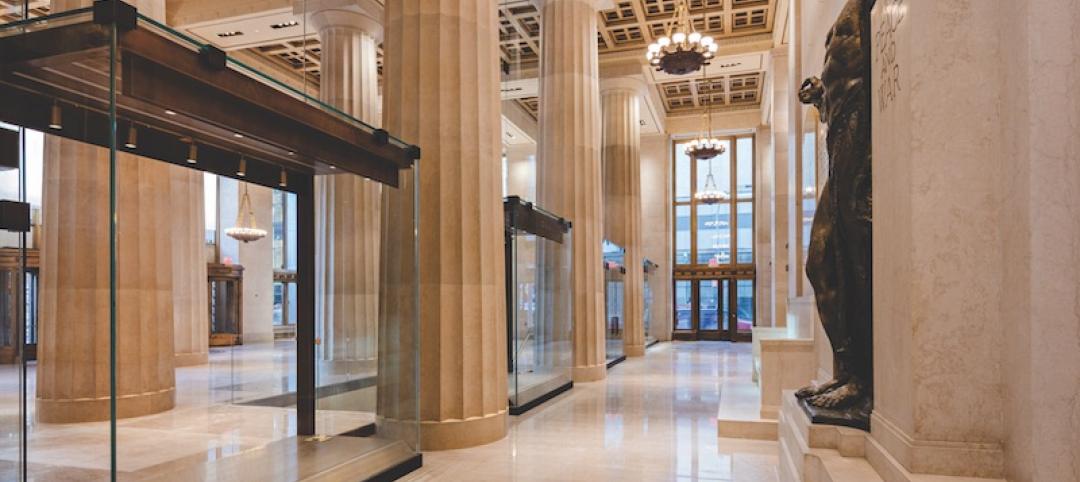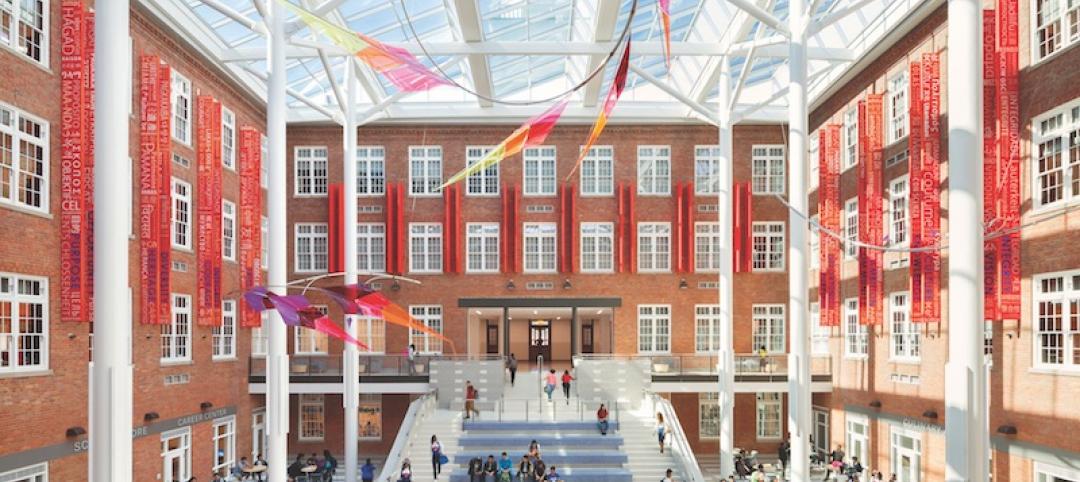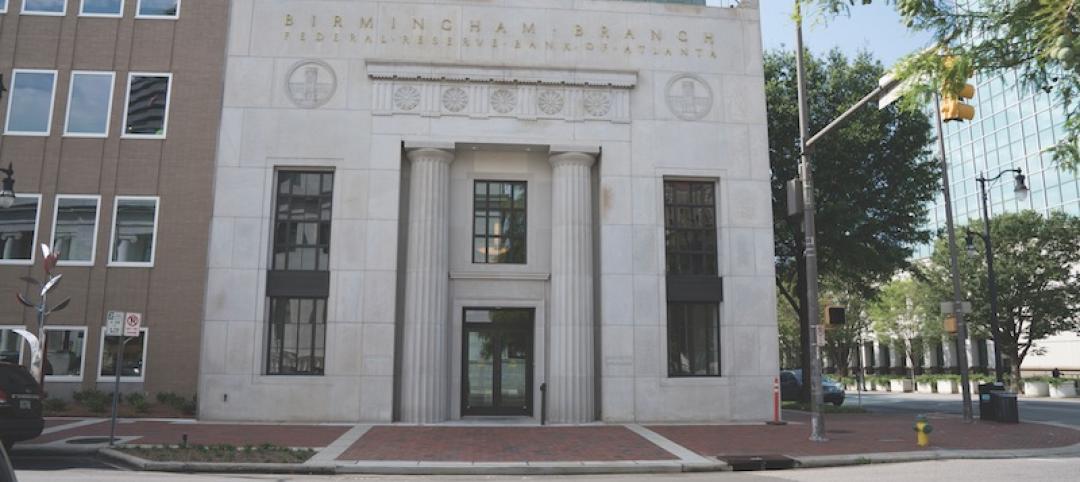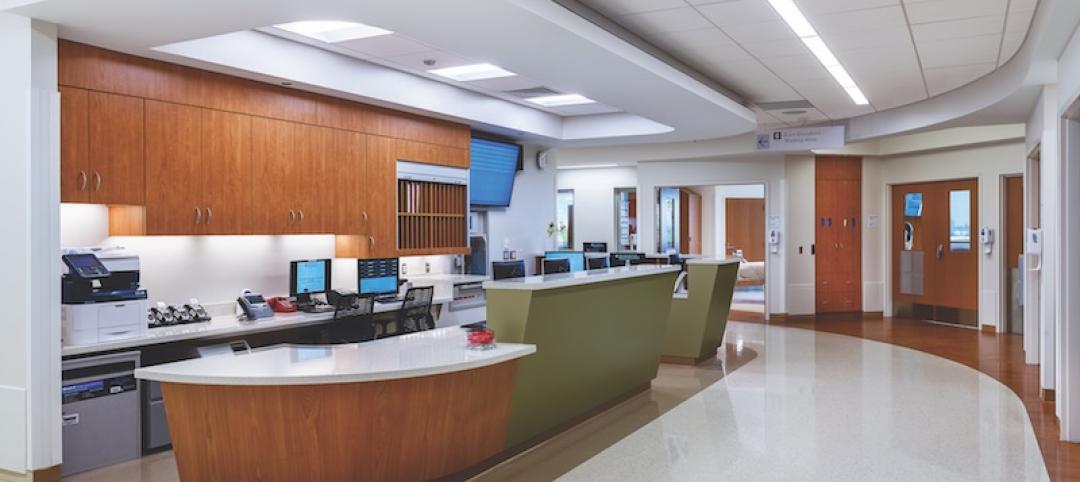Edward J. Stemmler Hall is an essential bridge that links the realms of education, discovery, and clinical practice for the University of Pennsylvania’s Perelman School of Medicine. The biomedical research and teaching facility, which was originally built in 1978, is located on the university’s campus at a critical juncture between academic, research, and healthcare facilities.
As a means of advancing the university’s Climate and Sustainability Action Plan, the school was considering a building systems-based retrofit of the 230,000-sf Stemmler Hall that would increase energy efficiency and renew building infrastructure.
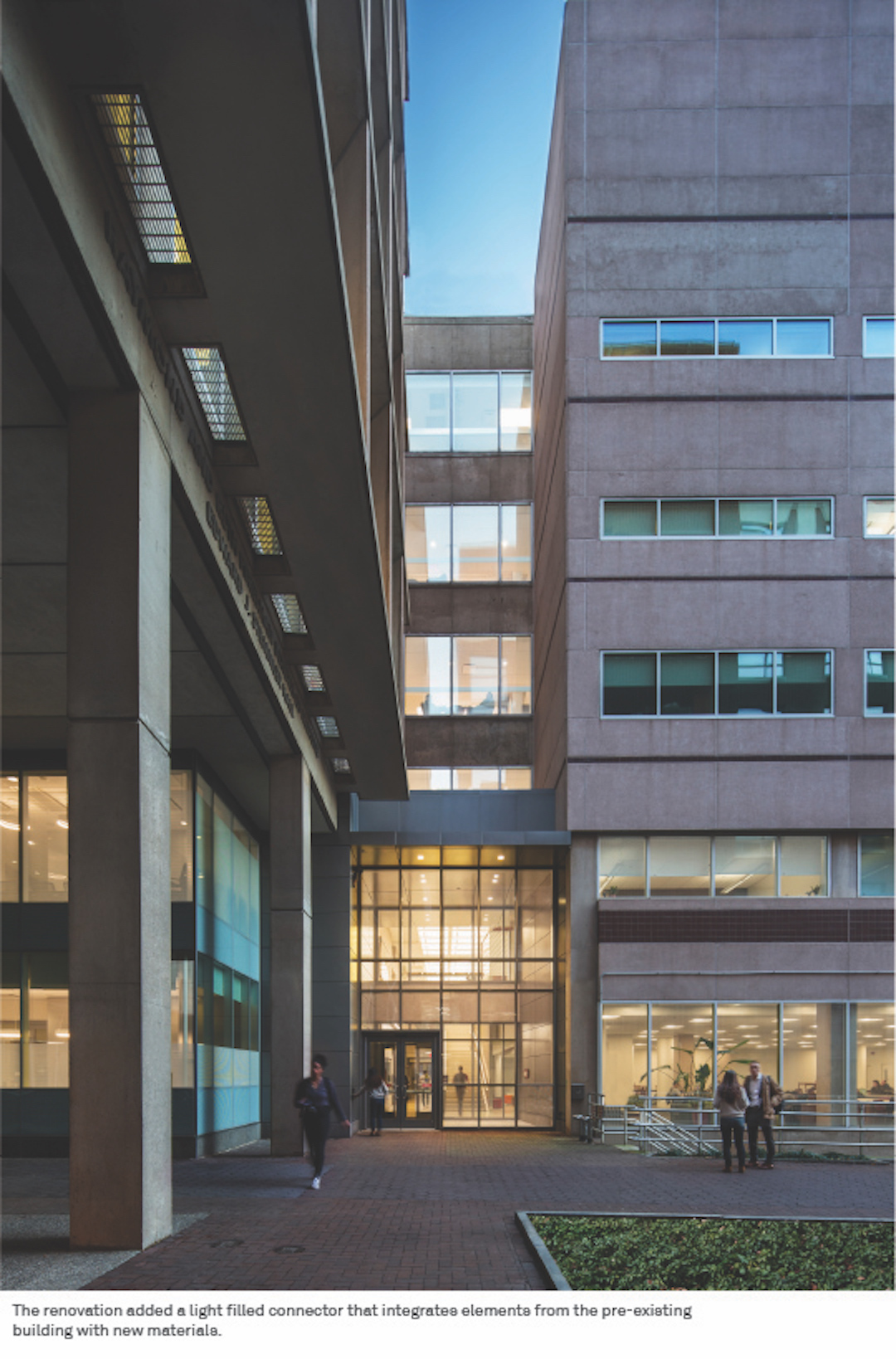
But after some discussion, Ballinger, the project architect, proposed a more holistic solution: a comprehensive renovation that would transform the building, providing new Class A laboratory space and replacing all building systems. The project sought to increase energy efficiency and deliver 102,000 sf of fully renovated research space.
Because of the building’s pivotal campus role, the facility needed to remain operational throughout construction, which posed logistical challenges related to accessing, assessing, and working within an occupied building.
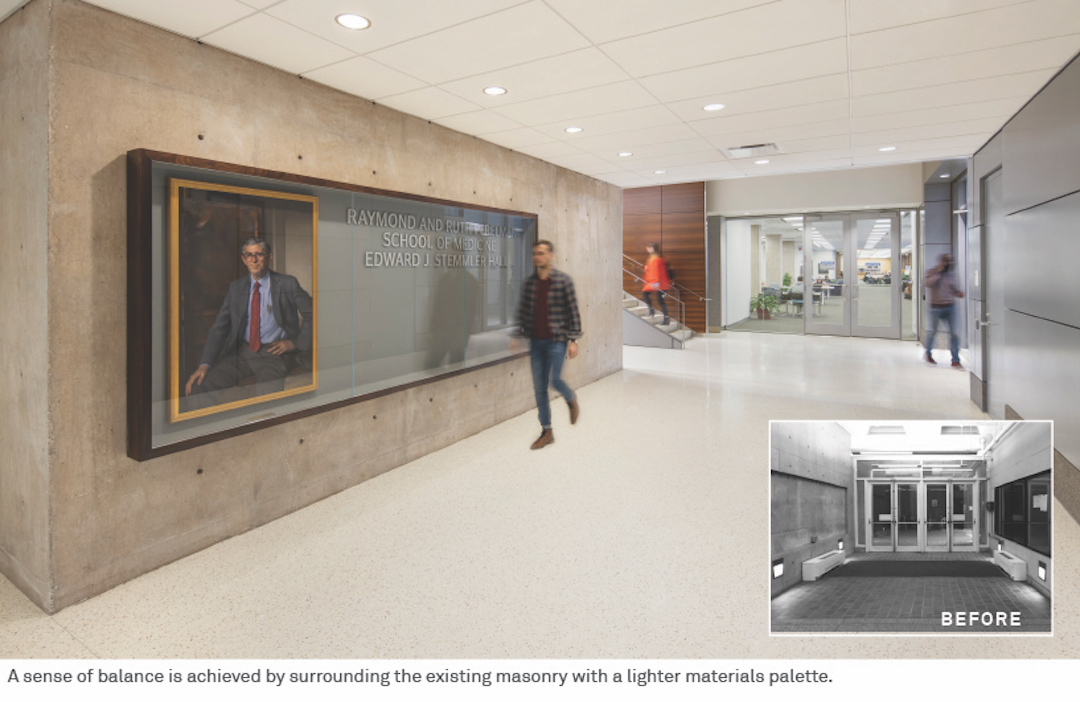
Construction was sequenced into three phases in order to maintain occupancy within the building:
Phase 0: Enabling Electrical and Tele/Data Infrastructure installed; temporary rooftop mechanical systems installed to maintain building operations
Phase 1: Renovate Levels B, G, 1, and 2; additional temporary mechanical systems installed to maintain building operations
Phase 2: Renovate Levels 3, 4, and 5; install permanent mechanical systems within renovated Penthouse
Occupant safety was assured by implementing open lines of communication. Project websites, weekly construction update emails, and town hall gatherings informed building users about progress, shutdown notices, and work schedules.
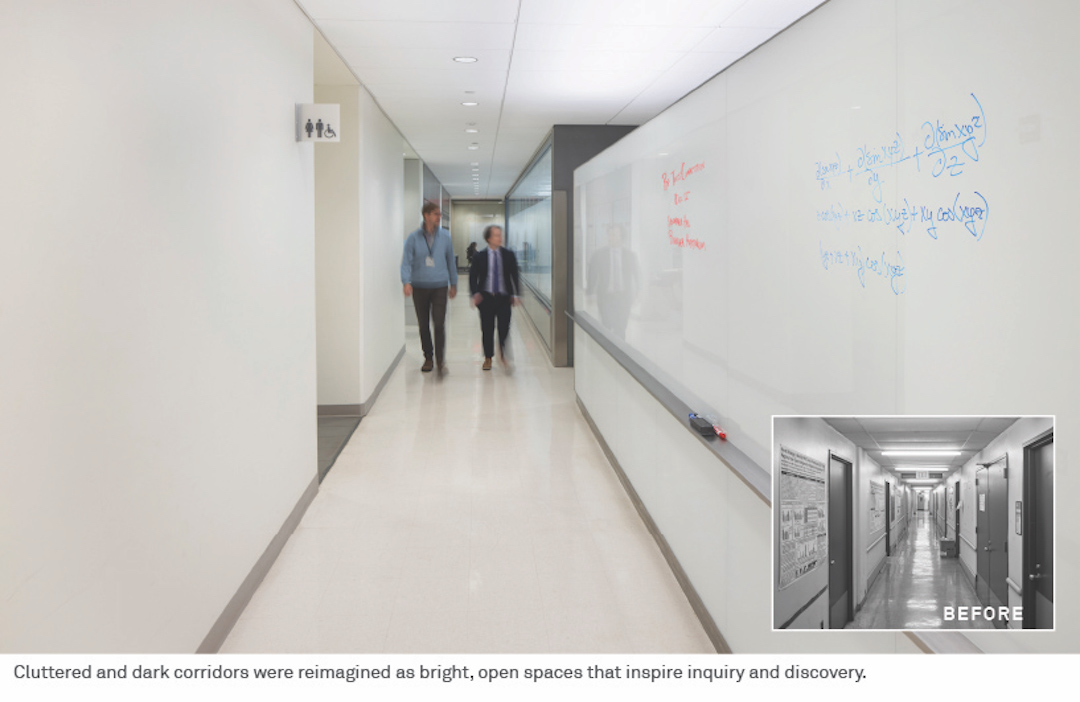
The build team drew upon Louis Kahn’s Richards Medical Research Laboratory, a landmark of the University of Pennsylvania’s design heritage, as a means of embedding the Stemmler Hall project within its context. Paying homage to this landmark, existing cast-in-place stair and elevator cores within Stemmler Hall were cleaned, restored, and highlighted as feature elements of the building. The concrete’s finish and texture serves as both a way-finding element and a unique component of the overall materials palette.
The renovation moved away from compartmentalized spaces and, instead, implemented an open lab concept that was critical to improving utilization within the existing floorplate. On the building’s lower levels, underutilized educational and administrative spaces were converted into revenue-generating research space.
A monumental stair improves campus flow and strengthens the connection between clinical practice and medical research, while an existing dark passageway beneath the building was reclaimed as a lobby that now acts as a connector to the surrounding buildings. Additional dark corridors were reimagined as bright, open spaces. At the building entry, a meandering series of public spaces were repurposed to better support student life.
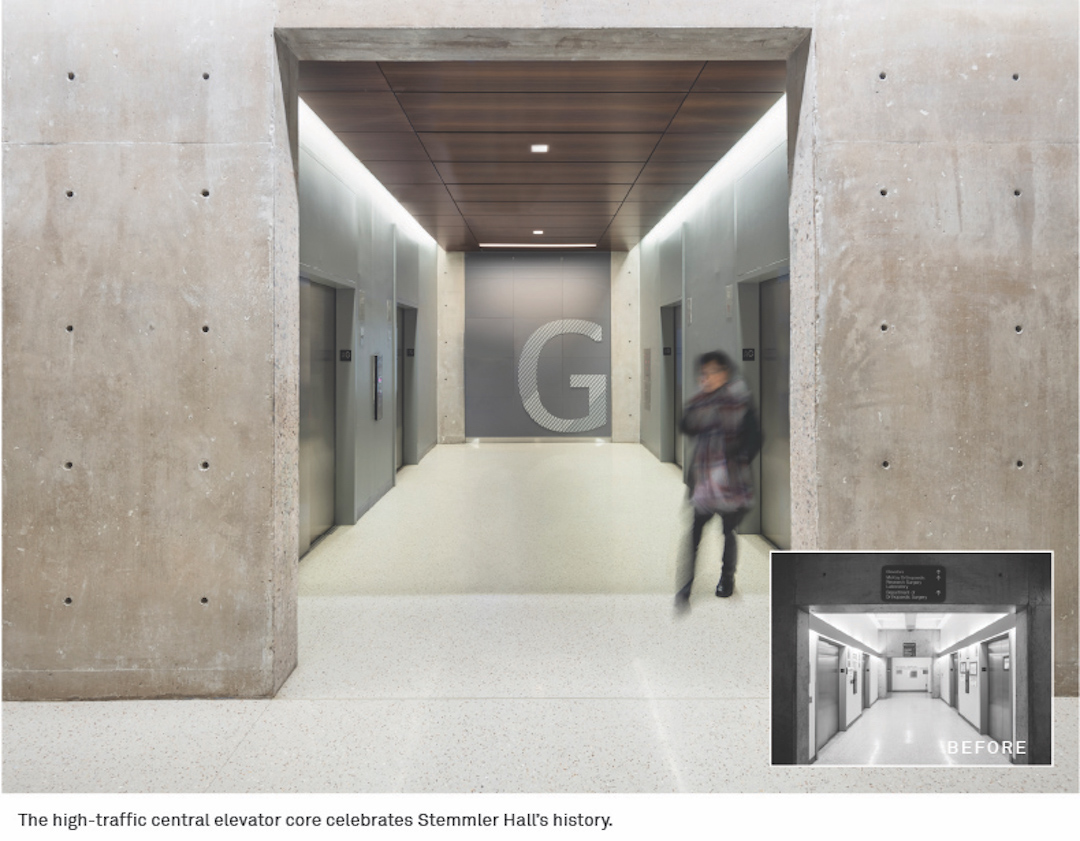
Deteriorated exterior insulation was replaced with foil-faced insulation, existing windows were replaced, a new insulated roof was installed, and existing pipes that had corroded over time were replaced.
The completed project delivered a 50% increase in lab workstation capacity, a 50% reduction in energy use, and $900,000 in projected annual energy cost savings. Stemmler Hall has become one of the most energy efficient research building’s on the University of Pennsylvania’s campus and is anticipated to obtain LEED Gold certification.
PROJECT INFORMATION: Size 230,000 sf Construction start and finish June 2015-January 2019 Cost Confidential at Client Request Delivery method Design/Bid/Build
BUILDING TEAM: Submitting firm Ballinger Owner/Developer University of Pennsylvania Architect Ballinger SE Ballinger MEP Ballinger Construction Manager Torcon, Inc.
Related Stories
Reconstruction Awards | Dec 1, 2017
Rescue mission: Historic movie palace is now the centerpiece of Baltimore’s burgeoning arts hub
In restoring the theater, the design team employed what it calls a “rescued ruin” preservation approach.
Reconstruction Awards | Dec 1, 2017
Gothic revival: The nation’s first residential college is meticulously restored
This project involved the renovation and restoration of the 57,000-sf hall, and the construction of a 4,200-sf addition.
Reconstruction Awards | Dec 1, 2017
Rockefeller remake: Iconic New York tower is modernized for its next life
To make way for new ground-floor retail and a more dramatic entrance and lobby, the team removed four columns at the ground floor.
Reconstruction Awards | Nov 30, 2017
BD+C's 2017 Reconstruction Award Winners
Provo City Center Temple, the Union Trust Building, and the General Motors Factory One are just a few of the projects recognized as 2017 Reconstruction Award winners.
Reconstruction Awards | Nov 29, 2017
College credit: Historic rehab saves 50% on energy costs
The project team conducted surveys of students, faculty, and staff to get their input.
Reconstruction Awards | Nov 29, 2017
Amazing grace: Renovation turns a church into elegant condos
The windows became The Sanctuary’s chief sales edge.
Reconstruction Awards | Nov 28, 2017
Broadway melody: Glass walls set just the right tone for a historic lobby in Lower Manhattan
The adaptation of the 45,000-sf neoclassical lobby at 195 Broadway created three retail spaces and a public walkway.
Reconstruction Awards | Nov 27, 2017
Higher education: The rebirth of a Washington, D.C., high school
The project team, led by architect Perkins Eastman, restored the original cupola.
Reconstruction Awards | Nov 27, 2017
Bank statement: A project team saves a historic bank, yielding 100% leaseup for the developer
The project team had to fix poor renovations made in the ’50s.
Reconstruction Awards | Nov 27, 2017
Patient friendly: The University of Chicago Medicine Center for Care and Discovery adds 203 new beds
Strict infection control and life safety measures were implemented to protect patients on other floors as work proceeded.


